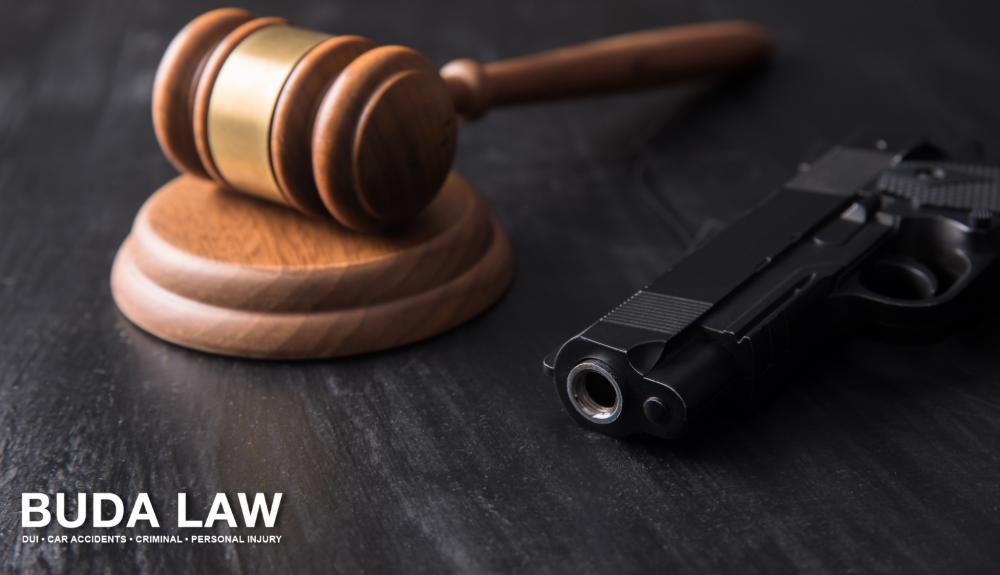Aggressively Fighting for the Best Possible Outcome
TAMPA AGGRAVATED ASSAULT LAWYER
Work with an Experienced Former Prosecutor
An aggravated assault arrest can have severe consequences if the offender is convicted. Florida considers these violent crimes and harshly punishes those guilty of committing these offenses. If convicted of aggravated assault, you’ll be charged with a third-degree felony and face significant prison time. What’s more, a felony conviction like this will remain on your criminal record forever, making it difficult to find employment and even housing.
If you’re facing an aggravated assault charge, you need an experienced Tampa criminal defense attorney fighting for your rights. At Buda Law, attorney Andrew Buda has experience as a former prosecuting attorney in both Hillsborough and Pinellas counties. This experience convicting criminals has given him an understanding of how exactly the prosecution works and what tactics they’ll use to get their conviction. Using this knowledge, Andrew Buda will create a strong defense to tear down their accusations and help you receive a lesser misdemeanor charge or have your felony charges dropped, dismissed, or acquitted at trial.

To schedule a free consultation with Tampa criminal defense attorney Andrew Buda, call Buda Law today at (813) 322-2832.
What is Aggravated Assault in Florida?
Florida Statute Section 784.011 defines “assault” as an intentional or unlawful threat by words or actions towards another person to create fear in that person that an act of violence will occur. The circumstances surrounding the assault will determine what the accused individual is charged with. Assault charges in Florida can range from minor offenses, like simple assault, to more serious crimes, like aggravated assault.
When a person threatens another with a deadly weapon and makes that person believe they are in imminent danger of great bodily harm or death, they’ve committed aggravated assault, according to Florida Statute Section 784.021. An aggravated assault charge relies on the fact that the person threatened another with a deadly weapon and appeared capable of following through with that threat.

Florida Statute Section 784.021
To be considered aggravated assault under Florida law, the following four elements must be met, according to Florida Statute Section 784.021:
- The person accused of committing aggravated assault did so with the intent to unlawfully threaten, either by action or words, to commit violence against the alleged victim.
- When the violent threat was made, the accused individual appeared capable of following through on that threat.
- The threat made by the accused was made knowing that the alleged victim would be afraid of the impending assault.
- The assault was made with a deadly weapon or with the conscious intent to commit a felony.
What is Considered a Deadly Weapon?
Florida Law considers a deadly weapon as any object that is used in a threatening way that can result in death or great bodily harm. The definition of a “weapon” doesn’t just cover a firearm or knife; it can cover any item that, when used in a threatening way, can cause great bodily harm.
The Florida Court system has considered beer bottles, tire irons, and even large sticks as deadly weapons when convicting individuals charged with aggravated assault.

What’s the Difference Between Assault and Battery Cases in Florida?
Based on the definition stated in Florida Statutes 784.011, assault is the unlawful threat of physical harm or death towards another person. If the person making the threats does not have a weapon, they can be charged with simple assault. A simple assault charge is considered a Florida second-degree misdemeanor resulting in up to 60 days in jail and a $500 fine. An example of simple assault is when someone yells at another person and threatens their life because they stole their parking place. In this scenario, no violence was actually used, but the act of violence was threatened.
People often associate the crime of “battery” with the crime of assault, but those two acts are actually considered separate offenses in Florida. If a person causes bodily harm to another, they can be charged with misdemeanor battery or felony battery, according to Florida Statute 784.045. A battery offense is considered a Florida 1st degree misdemeanor and is punishable by up to one year in jail and a $1,000 fine. Aggravated battery charges are much more severe and can result in up to 15 years in prison, hefty fines, and probation.
When a person threatens another AND inflicts great bodily harm, they can face assault and battery charges. The circumstance of the assault and battery will determine the severity of the penalties and fines the offender will be charged with. Since Florida considers assault and battery as two separate offenses, you will face two different criminal charges for assault and battery.
Penalties for Aggravated Assault in Florida
Aggravated assault is designated as a level 6 offense in the Florida Criminal Punishment Code Scoresheet, indicating its serious nature and the strict penalties it carries within the state’s judicial system. The charge is considered a third-degree felony under Florida law. If convicted of felony aggravated assault, you could face up to five years in prison, pay a $5,000 fine, and five years probation. The Florida legal system harshly prosecutes aggravated assault cases, with many first-time offenders facing prison time.
Working with an experienced criminal defense attorney can increase your chances of facing lesser punishment, especially if you’re a first-time offender. Former prosecuting attorney Andrew Buda has been on the other side of the courtroom, putting countless aggravated assault offenders behind bars. Now he works to defend them. However, his past experience as a prosecutor gives him the upper hand when defending clients against an aggravated assault charge. When you’re facing possible prison time, you want an attorney that has what it takes to defend you.

Penalties for “Special Victims” of Aggravated Assault
Certain circumstances can change the aggravated assault charge from a third-degree felony. For instance, if the aggravated assault involves a “special victim,” the offender will be charged with a second-degree felony and face up to 15 years in prison, a $10,000 fine, and 15 years of probation.
If one of the following individuals is engaged in professional duties at the time of the aggravated assault, the charges will be increased to a second-degree felony:
- A law enforcement officer
- Firefighter
- Emergency medical care provider
- Public transportation employee
- Code inspector
- Parking enforcement officer
There is another category of “special victims” that can also lead to second-degree felony charges. However, the individuals listed below do not need to be engaged in professional duties at the time of the aggravated assault:
- Anyone over the age of 65
- School employees
- Employees and investigators working for the Florida Department of Children and Family Services
- Elected officials of the local, state, and federal level
- Visitors or detainees at a correctional facility
Enhanced Penalties for Aggravated Assault
While the penalties for an aggravated assault conviction are already severe, those penalties can be enhanced based on other factors, like the type of weapon and the circumstances of the aggravated assault. Circumstances leading to enhanced aggravated assault penalties include:
- If the offender’s deadly weapon was discharged during the aggravated assault, they would face a minimum mandatory prison sentence of 25 years.
- If the deadly weapon is a semi-automatic firearm, the minimum mandatory prison sentence is 20 years. If that weapon is discharged, the penalty increases to 25 years.
- If the deadly weapon was discharged and resulted in the victim’s death, the prison sentence is 25 years to life.

Possible Defenses for Florida Aggravated Assault Charges
An aggravated offense charge isn’t an automatic prison sentence. You still have the right to legal representation and a chance to clear your name. That’s why, if you’re facing criminal charges like aggravated assault, you need an experienced Tampa criminal defense attorney to help fight on your behalf.
Attorney Andrew Buda has extensive knowledge and experience working with the Florida criminal justice system. Using this experience, he will craft a defense to argue against the alleged aggravated assault charges and work to create reasonable doubt within the jury.
Below are some of the more common defense strategies that are often used when fighting charges of aggravated assault:
- The accused acted in self-defense.
- The alleged victim made up the entire story of aggravated assault.
- Despite being threatened, the alleged victim did not actually fear their life was in danger.
- The weapon used is not a “deadly” weapon.
- The victim is the one that made threats.
- There was no intent to commit a felony.
- The weapon used or how it was used does not warrant an enhanced penalty.

Facing Aggravated Assault Charges? Call Tampa Criminal Defense Attorney Andrew Buda Today For a Free Consultation
An aggravated assault conviction is a serious criminal offense. This offense is considered a third-degree felony and will often lead to a lengthy prison sentence, even for first-time offenders. When you’re facing such severe criminal charges, you need an experienced Tampa criminal defense attorney on your side from the very beginning to ensure the most favorable outcome in your case.
Florida prosecutors harshly punish violent crimes, but as a former prosecutor himself, Andrew Buda knows precisely how to defend those accused of these crimes. Don’t leave such a severe criminal offense in the hands of an inexperienced attorney. To discuss your aggravated assault case with a Tampa aggravated assault attorney during a free initial consultation, call Buda Law at (813) 322-2832 today.
CASE RESULTS
Get the Toughness of a Trial Attorney
START BUILDING YOUR CASE
Schedule a Free Consultation
WHAT MAKES OUR DEFENSE SO EFFECTIVE?
- Former State Prosecutor
- Highly Responsive & Accessible
- Result-Oriented Advocacy
- We Prepare Every Case as if it's Going to Trial
- Personal Representation Centered Around You
- Exceptional Negotiator
